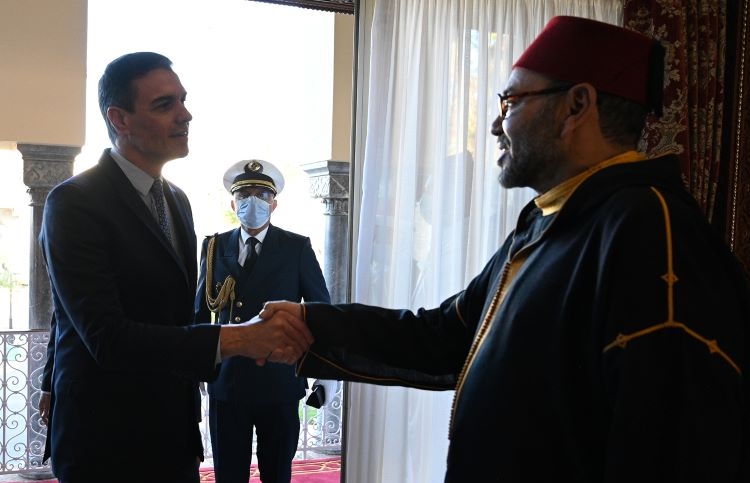The Diplomat
The academic think-tank ‘Europa Ciudadana’ advocates in a report to maintain the interest of the European Union and NATO in Ceuta and Melilla, in the face of Morocco’s insistent annexationist pretensions of these two autonomous cities.
The report, entitled ‘The role of Ceuta and Melilla on the global agenda’, recalls that Rabat has not yet explicitly recognised the Spanish status of the two cities, despite Spain’s shift with respect to the Sahara. On the contrary, Morocco’s actions have generated renewed interest within the EU in the security of both Spanish enclaves in North Africa, and also that NATO recognises that it would be involved in the defence of these cities, in the event that their security were threatened.
In the report’s view, the assault on Ceuta on 17 and 18 May 2021, when up to 10,000 migrants crossed from Morocco in the face of the impassivity of Moroccan security forces, was a “turning point in the international perception of Ceuta and Melilla as the southern border of Europe”.
This was evidenced by the reactions of both the President of the European Commission, Ursula Von der Leyen, and the President of the Council, Charles Michel, who made it clear to Rabat that the two Spanish cities also constituted the European border. The European Parliament also passed a resolution to the same effect with broad support.
In reality, Morocco had long been instrumentalising both autonomous cities with a view to provoking a change of position in Spain with respect to its traditional stance on the Sahara, encouraged by the decision in December 2020 of the then US President Donald Trump to recognise Moroccan sovereignty over the former Spanish colony, according to the document, to which Europa Press had access.
Thus, he first opted for the border closure with both autonomous cities at the start of the pandemic and then took advantage of the reception in Spain in April 2021 of the leader of the Polisario Front, Brahim Ghali, although his interest in Spain recognising the Sahara as Moroccan was always underlying.
To this he adds the authorisation for the construction of a fish farm in waters near Chafarinas in November 2021 and the entry of up to 500 migrants from a group of more than 2,500 in Melilla in March 2022, again in the face of the ‘passivity’ of the Moroccan authorities.
The letter sent by the President of the Government, Pedro Sánchez, to Mohamed VI on 14 March 2022, in which he stated that the Moroccan autonomy plan for Western Sahara was “the most solid, credible and realistic basis” for a solution to the dispute allowed the diplomatic crisis to be closed, but did not settle Morocco’s claim to the two autonomous cities, Europa Ciudadana stresses.
In this sense, it stresses that ‘the letter served for Spain to recognise Morocco’s territorial integrity and its strategic imperative over Western Sahara without, in return, urging Morocco to recognise Spanish territorial sovereignty in its entirety, that is, including the cities of Ceuta and Melilla and nearby territories’.
This factor, together with the NATO Summit to be held in Madrid at the end of June, reopened the debate on the inclusion of both autonomous cities in the Atlantic Alliance’s security umbrella. The government made it clear beforehand that it had no intention of requesting an amendment to the founding treaty for this purpose and was satisfied with the final wording of the Strategic Concept, considering that it was guaranteeing allied support in the event that Ceuta and Melilla came under attack.
The document, which will guide the Alliance for the next decade, makes it clear that “although NATO is a defensive alliance, no one should doubt our strength and determination to defend every inch of Allied territory, preserve the sovereignty and territorial integrity of all Allies and prevail against any aggressor”.
Thus, Ceuta and Melilla were placed on both the European and global agendas, being on NATO’s radar, defends Europa Ciudadana in its report, although it admits that “it cannot be ignored that Morocco has not backed down in its instrumentalisation of the two autonomous cities”, as was made clear, for example, in a letter to the UN Human Rights Council in which it was stated that Morocco had no border with Melilla but that what existed was a “line of separation”.
For all these reasons, after acknowledging that “the constant winks to Morocco by former political figures with interests in Morocco, such as the former Socialist Housing Minister María Antonio Trujillo, do not guarantee that attention to Ceuta and Melilla will wane in the immediate future”, Europa Ciudadana appeals to prevent this issue from disappearing from the global agenda.
“It is important that the Spanish, European and international authorities avoid any setback in the consolidation of Ceuta and Melilla in the global agenda and continue to be involved in the claim, pedagogy and defence of the Spanish and European nature of both autonomous cities,” the think-tank argues.
Thanks to Morocco’s ‘revisionist policy’, ‘both autonomous cities have shed the aura of indifference that has traditionally surrounded them in the media and institutional panorama’. The European conception of Ceuta and Melilla as European borders “is firmer today than it was before 2020”, he adds.
On the other hand, ‘the debate on the legal ambiguity of the Washington Treaty has had a positive outcome for Spain because the Strategic Concept of 2022 leaves no room for doubt: NATO will be involved in the defence of the territorial integrity and sovereignty of the allies’, the document stresses.
However, it warns that Morocco could continue to exploit both enclaves because ‘the shift in Spanish policy has not been accompanied by an explicit recognition of Spain’s sovereignty and territorial integrity by Rabat’.
“Therefore, it cannot be concluded that Ceuta and Melilla will enjoy peace of mind in the future” since “Morocco’s strategic imperative, today incompatible with the independence of Western Sahara, clashes with the Spanishness of Ceuta and Melilla”, the ‘think-tank’ stresses.







